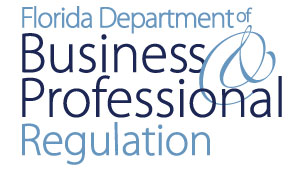BLOG
A couple of years ago we saw the Florida state legislature add teeth to Florida’s condo and HOA laws governing theft, fraud, abuse and conflicts of interest. Recently, the Department of Business and Professional Regulation, the state agency that governs community associations, followed suit by implementing harsher civil disciplinary guidelines for condominium association infractions.
The new guidelines detail the civil penalties and disciplinary procedures for violations of the Condominium Act and the Florida Rules of Administrative Procedure involving accounting records, assessments, boards, budgets, common expenses, conflicts of interest, debit cards, elections, estoppel certificates, final orders, fiduciary duty, investigations, records requests, financial reporting, reserves, special assessments and websites.
 For minor violations, the disciplinary guidelines call for the agency’s Division of Condominiums, Timeshares and Mobile Homes to issue the association with a written Notice of Noncompliance “due to the violation’s lower potential for public harm.” If the association fails to comply with the stipulations called for in the Notice, it could result in sanctions and enforcement with monetary penalties being imposed in amounts between $5 and $10 per unit for each violation. The maximum penalty for minor violations is $2,500, for a single minor violation.
For minor violations, the disciplinary guidelines call for the agency’s Division of Condominiums, Timeshares and Mobile Homes to issue the association with a written Notice of Noncompliance “due to the violation’s lower potential for public harm.” If the association fails to comply with the stipulations called for in the Notice, it could result in sanctions and enforcement with monetary penalties being imposed in amounts between $5 and $10 per unit for each violation. The maximum penalty for minor violations is $2,500, for a single minor violation.
The new procedures also eliminate the notice requirement for violations that are considered “major,” which constitute the bulk of the infraction types listed above. For example, while in the past an accounting or records request violation would result in a warning letter, now the Division is moving directly to the issuance of fines. For all “major” violations, the penalty imposed will range from $10 to $30 per unit for each violation, with a minimum penalty of $500, whichever is greater. The exact amount will be based upon any aggravating or mitigating circumstances pertaining to the violation. For both types of violations (minor and major), multiple counts of violated provisions or combinations of violations would be added together to determine the total penalty.
The new guidelines for disciplinary penalties should send a very clear message to associations and managers about the potentially significant ramifications of any failure to comply with the applicable laws and regulations. These penalties can take a severe financial toll on associations, which should work with highly qualified and experienced legal counsel to help ensure that they always remain in compliance.

